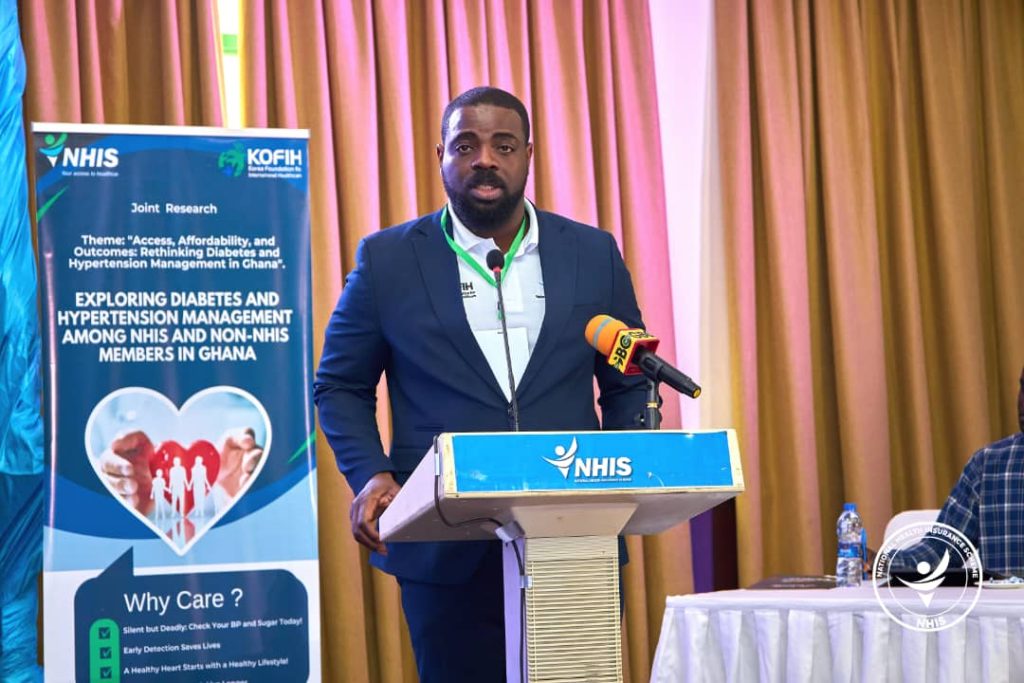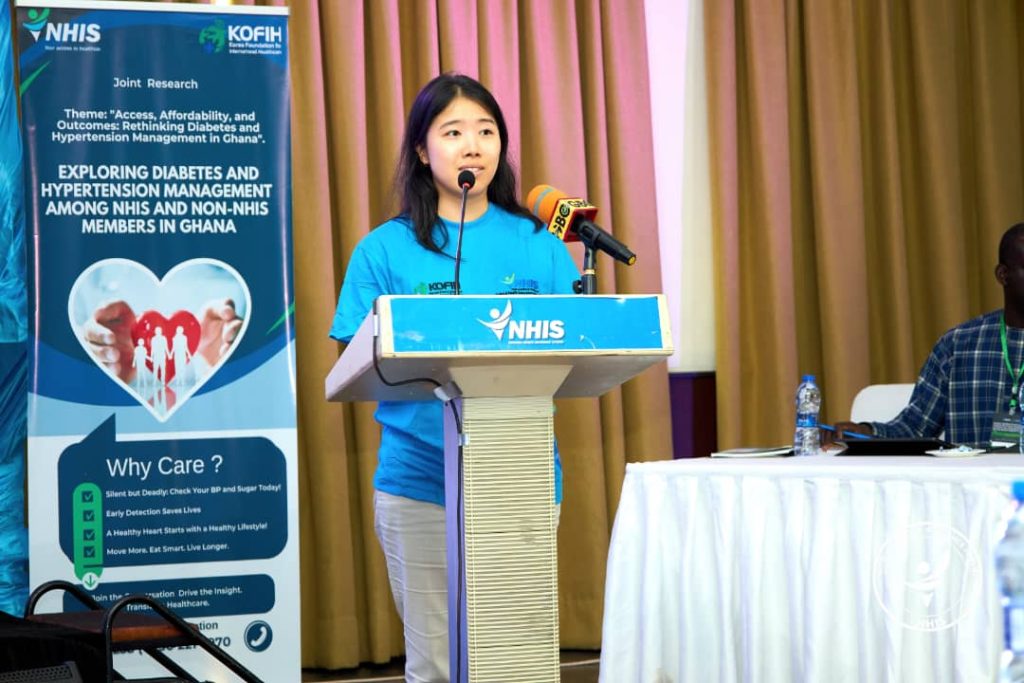NHIA, KOFIH Join Forces to Improve Diabetes and Hypertension Care in Ghana
Source: Abdul Karim Naatogmah Contributor
Ghana’s National Health Insurance Authority (NHIA) in partnership with the Korea Foundation For International Health (KOFIH), successfully held a multi-sectoral conference in Accra, focusing on diabetes and hypertension diseases rising prevalence in Ghana and the management strategies.
The NHIA’s Research, Policy, Monitoring and Evaluation Directorate organized the round table discussions, aimed at finding practical solutions to the ailments widespread.

Policymakers, health professionals, researchers, and development partners participated in the event under the theme: “Access, Affordability, and Outcomes: Rethinking Diabetes and Hypertension Management in Ghana.”
The NHIA’s Deputy Chief Executive in charge of Operations, Dr. Senanu Kwesi Dzokoto in his opening remarks bemoaned the rising prevalence of hypertension and diabetes diseases in Ghana.

“The NHIS has been instrumental in expanding access to essential healthcare services. If we do not act with urgency and precision, the rising burden of chronic diseases will undermine the progress we have made. Prevention must become a central pillar of our national health strategy.”
The KOFIH’s Ghana Office Deputy Director, Ms. Chae Eun Kim, revealed that Non Communicable Diseases
accounted for 80 percent of all deaths recorded in South Korea.
She highlighted Ghana and Korea’s partnership, seeking to enhance quality healthcare delivery to all residents in Ghana.

“Our collaborative research with NHIA has revealed the urgent need for policy interventions, including the expansion of NHIS coverage to incorporate preventive services.”
Professor Gordon Abekah-Nkrumah of the University of Ghana Business School decried the rising prevalence of diabetes and hypertension in Ghana and the economic challenges, in healthcare financing.
“Hypertension and diabetes now rank among the top five disease categories under the NHIS, accounting for over 10 percent of total claims expenditure.”
A comprehensive report titled “Exploring Practices in the Management of Diabetes and Hypertension among the National Health Insurance Scheme (NHIS) and Non-NHIS Members in Ghana was launched.

The report dovetails critical insights into access, affordability, treatment adherence, and public attitudes toward chronic diseases care.
The NHIA’s Research, Policy, Monitoring and Evaluation Directorate, Acting Director, Mr. Abass Suleymana moderated the presentation of the joint forces research findings.
He explained, “The report uncovered that 30.34 percent of deaths recorded in Ghana are attributed to hypertension, while 26.27 percent are linked to diabetes.”
“Although many patients are accessing care through NHIS-credentialed providers, out-of-pocket costs remain a challenge, and public awareness of the seriousness of these conditions vary widely.”
“While 46.13 percent of respondents viewed hypertension and diabetes as serious health hazards, 6.7 percent did not consider the diseases a serious risk._
Mr. Abass Suleymana stated “This signals a clear need for intensified public education.”
In a panel discussion, the NHIA’s Senior Director for Special Initiatives, Dr. Anthony Gingong, raised concern about the diseases management financial implications, in relation to the NHIS coverage.
“It is troubling to see how much of the NHIS resources go into managing conditions that could largely be avoided through prevention and early intervention.”
The stakeholders emphasized the need for stronger partnership, advocacy, and the integration of preventive healthcare services into the NHIS Benefit Package to ensure improved health outcomes and long-term sustainability.
The NHIA and KOFIH’s longstanding partnership concentrates on strengthening Ghana’s health eco-systems, personnel capacity building and boosting innovations in healthcare service delivery.
The ultimate goal is advancing Ghana’s agenda of Universal Health Coverage (UHC) by 2030, through evidence-based policy and multi-sectoral engagements.

